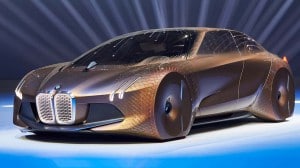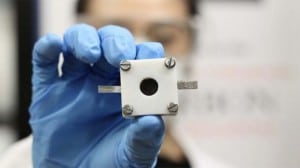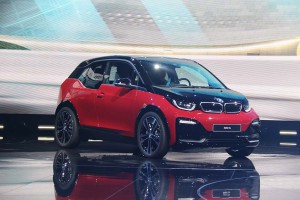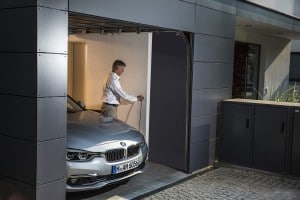
BMW is teaming up with a Colorado-based start-up in the search for the next generation of electric vehicle batteries.
Formed in 2012, Solid Power bills itself as “an industry-leading developer” of what are known as solid state batteries. The technology is expected to result in significant improvements over today’s advanced lithium-ion batteries, among other things packing in more power at a lower cost while also sharply reducing charging times.

“Since the company’s inception, the Solid Power team has worked to develop and scale a competitive solid-state battery paying special attention to safety, performance, and cost” Doug Campbell, founder and CEO of Solid Power, said in statement. “Collaborating with BMW is further validation that solid-state battery innovations will continue to improve electric vehicles. We’re looking forward to working with BMW on pushing the limits on developments around xEV batteries.”

Spun off from the University Colorado Boulder, Solid Power is one of a number of companies working to develop solid state batteries which are expected two to three times the energy density of today’s lithium technology. That can translate into significantly longer range or a much smaller battery pack than that found in today’s battery-electric vehicles. A 60 kilowatt-hour pack, like the one used in a Chevrolet Bolt EV, weighs in at nearly 1,000 pounds.
But solid state batteries are expected to offer a number of other advantages. Charging times are expected to be greatly reduced, some analysts predicting it could soon be possible to recharge an electric vehicle in as little as five to 10 minutes, roughly in line with what it takes to refuel a car with an internal combustion engine.
Then there’s cost. Lithium batteries have come down substantially since the beginning of the decade when a kilowatt of battery cells cost at least $700, according to a recent study by the Boston Consulting Group. The figure is currently under $200 and BCG expects it will drop to around $70 within five years. But the consulting firm said solid state batteries could be 10 to 20% less than lithium by then.

(BMW is pushing to grow its EV sales by 50% in 2018. Click Here for the story.)
The technology is already proving effective in lab and early field testing but several experts in the field have cautioned TheDetroitBureau.com that solid state batteries still need to be proven reliable when facing the harsh environments a car routinely operates in. And there’s also the challenge of mass-producing the new technology.
But with electrified vehicles expected to gain a significant foothold during the next decade, manufacturers are racing to get a leg up with better battery technology.
BMW is just one of the manufacturers interested in solid state batteries. Toyota has called the technology a “game-changer,” and strongly hinted it will use the new energy storage devices in the battery-electric vehicles, or BEVs, it plans to produce at a new U.S. plant, starting around 2021. On Monday, the automaker revealed plans to have at least 10 BEVs in production by the “early 2020s.”
(Click Here for details about Toyota’s plans to use solid state batteries for its future EVs.)

Last week, Toyota announced a new joint venture with Panasonic, one of the world’s largest suppliers of automotive batteries. It is expected that project will focus on solid state technology.
British appliance maker Dyson purchased another start-up, the University of Michigan spinoff Sakti3, for its solid-state research. And Dyson now plans to produce battery-cars using the technology, as well.
Several other major automotive suppliers are working on solid state technology, including Bosch and Continental.
(To see how mass EV charging could cause problems, Click Here.)
Because of the uncertainties about reliability and manufacturability many industry planners say they are reluctant to yet bet on the new technology, but they also generally agree that if solid state batteries do prove viable they’ll likely replace conventional lithium-ion technology even more quickly than lithium replaced earlier nickel-metal hydride batteries.







